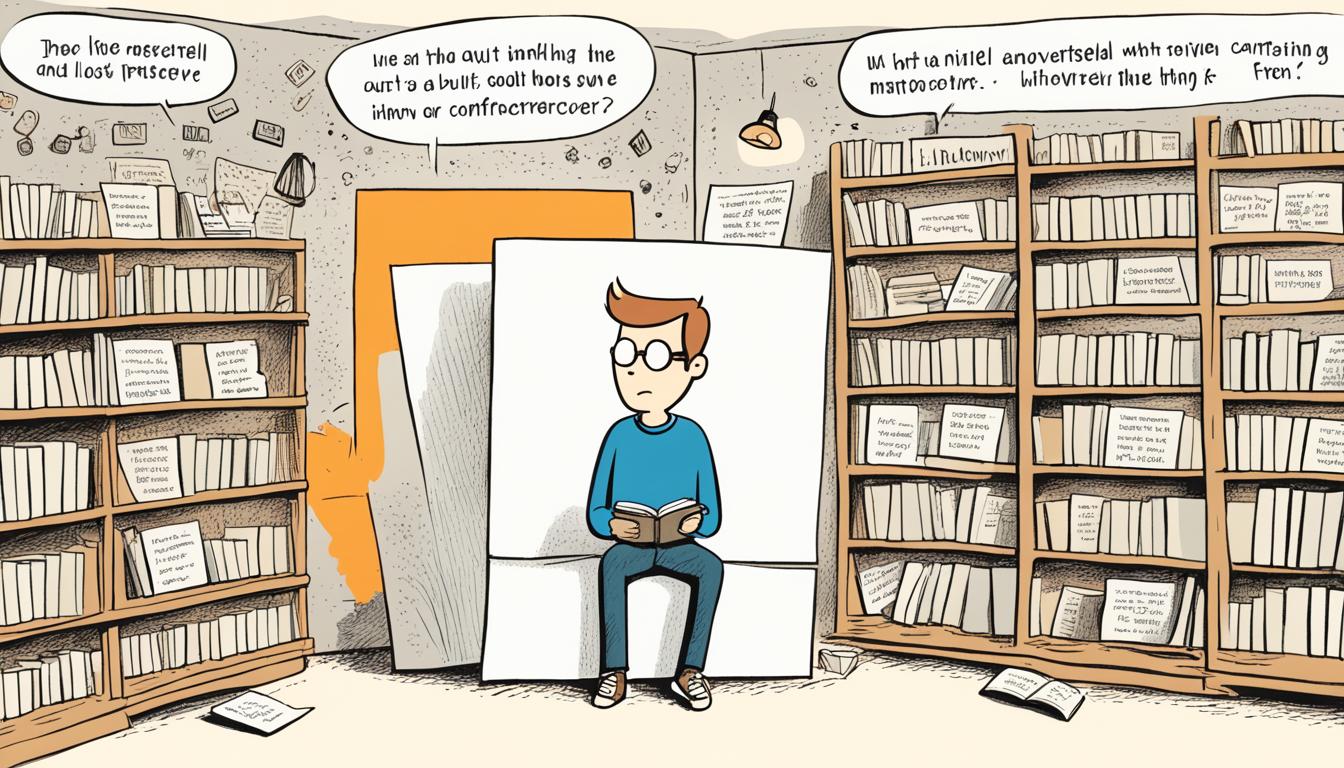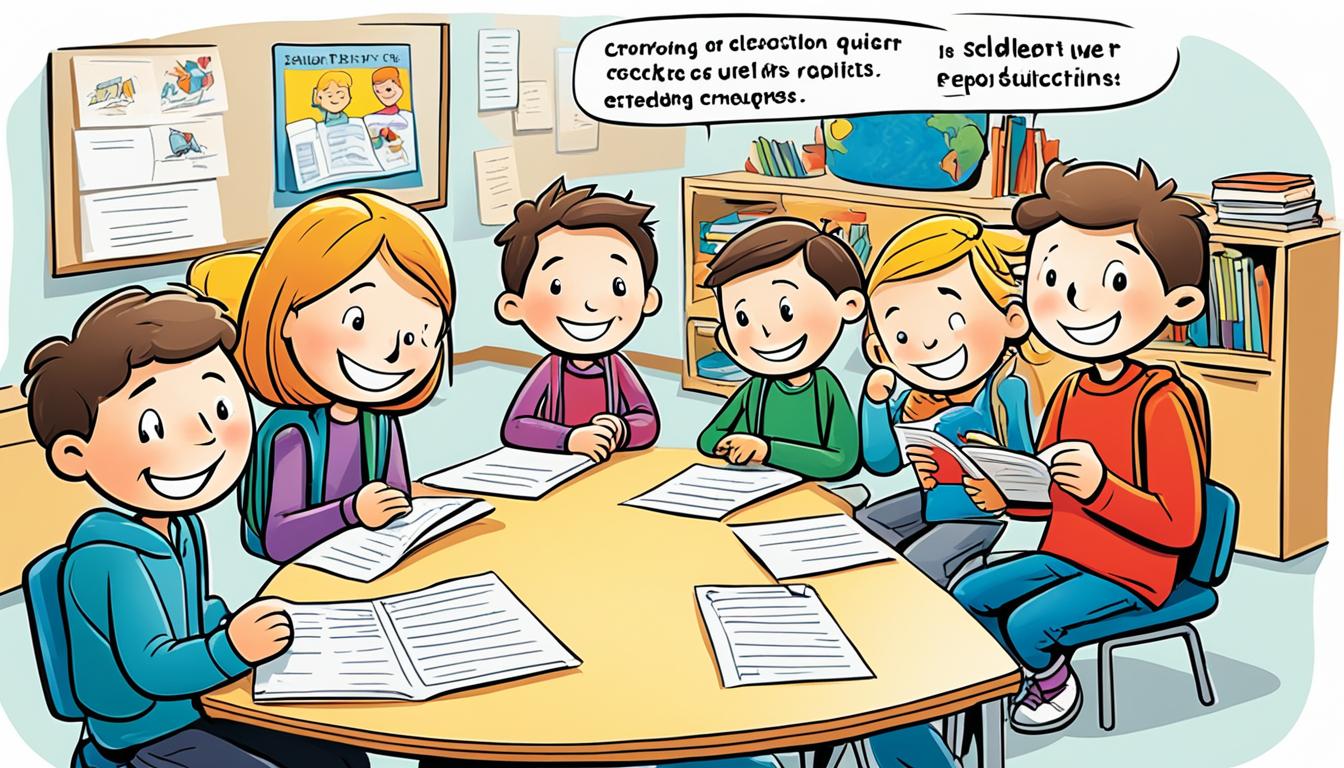Introverted people are often seen with doubt due to their quietness. This reserved behavior might lead others to think they’re not reliable. But are these views right? Can an introvert really be trusted? Let’s explore the real facts on trusting introverts.
Key Takeaways
- Introverts are often misunderstood and wrongly perceived as untrustworthy due to their reserved nature.
- Trusting an introvert can bring numerous benefits, including their excellent secret-keeping abilities, attentiveness, and loyalty.
- Nevertheless, caution should be exercised as introverts can be difficult to read and may take longer to open up.
6 Reasons Why Trust an Introvert:
1. Excellent Secret-Keepers
Introverts are known for being great at keeping secrets. They are careful and discreet with sensitive information. You can count on an introvert to keep personal or professional secrets safe.

| Introvert Secret-Keepers |
|---|
| ✓ Trustworthy |
| ✓ Discreet |
| ✓ Reliable |
| ✓ Honorable |
Let’s say you tell a personal secret to your introverted friend, Amy. You can be sure Amy will protect your secret. Her trustworthiness and discretion mean your information is safe with her.
2. Don’t Crave Attention
Introverts are known for not needing the spotlight. This is different from extroverts, who love being the center of social events. They find comfort in their own company and don’t seek others’ approval constantly.
They would rather dive into their thoughts and feelings than always look for external excitement. This way of life helps them understand themselves and others better. This makes them excellent friends or team members.
Introverts look for real, deep connections instead of just trying to be noticed. They put their effort into relationships that last and mean something. This is instead of shallow interactions that only aim for attention.
Imagine working with an introvert on a detail-oriented project. They would not be distracted by wanting attention. They would instead invest true interest and care in the work, ensuring everything is done right.
This ability to not seek attention all the time makes introverts dependable and sincere. They choose depth and realness over being superficial.
Example
Below is a table showing how introverts and extroverts differ in their approach to seeking attention:
| Introverts | Extroverts | |
|---|---|---|
| Desire for Attention | Don’t crave attention; value meaningful connections | Crave attention; seek external validation |
| Focus | Internal; thoughts and reflections | External; interactions and socializing |
| Relationships | Deep and meaningful connections | Wide network of acquaintances |
3. Fantastic Listeners
Introverts are known for their great listening skills. When you talk to an introvert, they listen closely. They understand your feelings and viewpoints very well.
Introverts don’t just hear you; they take part in the chat. They ask smart questions and have helpful ideas. They notice things others might overlook, making them keen observers in talks and relationships.

Imagine chatting about a tough issue with an introverted coworker. They listen without interrupting, instead of pushing their views. They think over what you say. Then, they share thoughts that consider your side of things.
| Benefits of Introverts as Listeners: |
|---|
| 1. Active engagement in conversations |
| 2. Empathy and understanding |
| 3. Ability to pick up on subtle cues |
| 4. Thoughtful feedback and insights |
Trusting an introvert to listen can make talks more meaningful. Their skill in real listening helps build deeper bonds and better communication.
4. Think Before They Speak
Introverts are known for thinking carefully before they talk. They process their thoughts well before they express them. This careful thinking lets them pick their words carefully.
This means you can trust an introvert to say things that are thought through. Their way of communicating can make conversations more effective.
Let’s take Sarah, an introverted colleague, as an example. In meetings, she listens well and takes time to think. When Sarah speaks, her insights are clear and helpful, enriching the discussion.
Introverts like her think before speaking, which leads to clearer communication. This helps them avoid misunderstandings and share their thoughts accurately.
Table 6 shows some key features of how introverts communicate:
| Characteristics | Benefits |
|---|---|
| Thoughtful and deliberate | Ensures meaningful messages |
| Concise and insightful | Contributes valuable input |
| Promotes clear and accurate communication | Avoids misunderstandings |
By valuing the introverted approach, you can enjoy better and more meaningful interactions.
5. Value Privacy
Introverts value privacy highly. Unlike extroverts, they are careful with personal details. They prefer to keep things to themselves.
This makes them reliable. They avoid spreading gossip or sharing secrets. Thus, you can trust them with your confidential information.
They respect others’ privacy as well. By keeping your secrets, they prove to be faithful friends. Their discretion builds strong, trust-filled relationships.

Consider a close friend who’s an introvert. You share a personal issue with them, expecting confidentiality. They honor this by keeping your situation private.
This action cements your trust in them, strengthening your friendship.
| Value Privacy |
|---|
| Introverts highly value privacy |
| Less likely to gossip or reveal confidential information |
| Respect personal boundaries and the privacy of others |
| Keep secrets safe and not betray trust |
6. Loyal to the Core
Introverts are known for their trustworthiness and deep loyalty. Once they connect with someone, they fully commit to that bond. They look beyond just talking, focusing on making their relationships last.
Imagine a friend who’s always there for you, in good and bad times. An introvert offers that kind of support and loyalty. They’re reliable, whether as a partner, family member, or friend.
Introverts have a strong personal integrity, driving their loyalty. They seek genuine connections and are careful about who they trust. Once you’re in their circle, they do their best for your happiness.
Introverts are the solid support in tough times. Their loyalty means they’re always there, offering stability. With an introvert by your side, you have a loyal ally no matter what.
Introverts value loyalty and work hard to keep their relationships strong. Their dedication shows how much they care. If you need a trustworthy friend, an introvert is your best choice.
3 Reasons to Be Cautious When Trusting an Introvert
Introverts often get misunderstood and seen as untrustworthy because they’re quiet. But should we judge based on their quietness alone? Can you really trust an introvert? Let’s look deeper into this and question common beliefs.

3 Reasons to Be Cautious When Trusting an Introvert
1. Difficult to Read
Trusting an introvert can be hard because they are often hard to read. They tend to be quiet and think deeply, making it difficult for others to know what they’re feeling or thinking. Since they don’t always share their feelings or thoughts openly, it can cause misunderstandings in relationships.
Imagine you’re working on a project with someone who is introverted. They might have great ideas but do not share them in meetings. This situation makes it hard to know how involved they are or if they support the project’s goals. People might start to doubt their dedication to the team.
But, it’s key to understand that just because introverts are hard to read doesn’t mean they are not to be trusted. It just means getting to know their point of view might take more time, patience, and effort in talking openly.
To better understand introverts, try these tips:
- Have one-on-one chats. Introverts often feel more comfortable sharing in a more private setting. Make time for these conversations to really grasp what they’re thinking.
- Listen well. Focus on what they say and their body language. Introverts might express themselves more through actions than words, so pay attention to these signs.
- Ask questions that make them think. Instead of wanting quick answers, let them take their time to answer by asking questions that need more thought.
| Challenge | Strategy |
|---|---|
| Difficulty in reading introverts | – Engage in one-on-one conversations – Listen actively – Ask open-ended questions |
2. Might Withhold Information
Introverts are often great at keeping secrets, but sometimes they might not share everything.
They usually keep things to themselves, choosing what to share carefully. This is because they think a lot before they talk. So, they might not share stuff they think is not needed or important.
Imagine you and an introvert are working on a project. They might have great ideas that could help. But if they feel their ideas are already mentioned by someone else or not needed, they might not say anything.
Introverts being careful about sharing doesn’t mean they’re dishonest. It’s just their way of careful talking.
To get the best from introverts, make them feel safe to share their thoughts. This way, their valuable insights won’t be missed.

3. Slow to Open Up
Introverts often think a lot and enjoy being alone. This makes them great at keeping secrets and being true friends. Yet, it also means they might not share their feelings quickly. Being slow to share isn’t about trust. It’s just how they are.
Introverts like to think about their feelings and thoughts alone first. They need a safe space to open up. If they seem distant, it’s not that they don’t trust you. They’re just careful about their feelings and value real connections.
Picture having an introvert friend. They may not quickly tell you their fears. But if they feel safe with you, they will share over time. This process of opening up slowly can make your friendship stronger. It shows they trust you with their true self.
So, introverts may take time to share, but it’s not because they’re not trustworthy. They just share in their own way. By giving them space and time, you can create a strong bond. This bond is built on trust and being real with each other.
FAQ
Can introverts be trusted?
Yes, introverts can be trusted like anyone else. Being trustworthy isn’t about being an extrovert or introvert. It’s wrong to judge based on stereotypes. Everyone, including introverts, deserves a chance to show they’re trustworthy.
What are some reasons why you can trust an introvert?
There are several reasons to trust an introvert:
Are introverts good at keeping secrets?
Yes, introverts are great at keeping secrets. They’re private people and don’t share everything. This makes them good at keeping private info safe.
Do introverts crave attention?
No, introverts don’t look for the spotlight like extroverts might. They’re fine away from the center of attention. So, they’re dependable when seeking attention might be a problem.
Are introverts good listeners?
Yes, introverts are excellent listeners. They notice details and understand others well. Their listening skills make them solid supporters and friends.
Do introverts think before they speak?
Yes, introverts think before they talk. They take time to process their thoughts and choose words carefully. This careful communication shows they’re thoughtful about the impact of their words.
Do introverts value privacy?
Yes, introverts really value their privacy. They enjoy having their own space and time alone. They also respect others’ privacy, making them trustworthy for not overstepping personal boundaries.
Are introverts loyal?
Yes, introverts are extremely loyal. They hold dear to strong, deep bonds and keep a close-knit group of friends. Earning an introvert’s trust means gaining a committed and loyal friend or partner.
Should I be cautious when trusting an introvert?
While introverts are generally trustworthy, it’s smart to be aware of some things before fully trusting them:
Are introverts difficult to read?
Yes, it can be hard to read introverts, especially if you’re used to loud cues and social signs to understand someone. Their quiet nature might hide what they really feel or think. It takes more effort and attention to really get them.
Do introverts sometimes withhold information?
Yes, introverts might not share information sometimes, especially if they’re still figuring out their own feelings or thoughts. They often need more time to think before they’re ready to share.
Are introverts slow to open up?
Yes, introverts open up slowly. They’re careful and want to feel secure before sharing their deepest thoughts. To build trust with an introvert, being patient and understanding is important.





